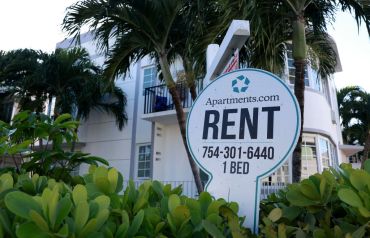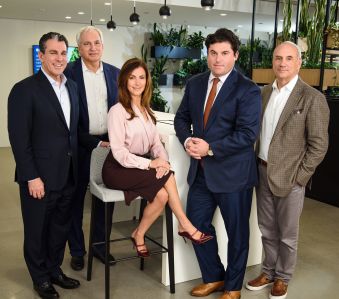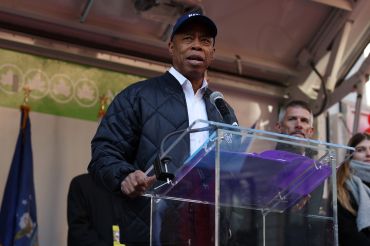Helping Hudson: Ellen Baer on Transforming Hudson Square
By Gus Delaporte December 3, 2013 9:00 am
reprints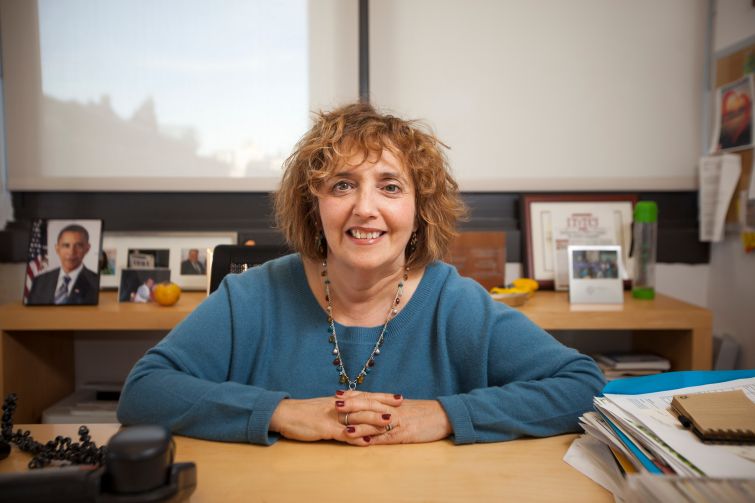
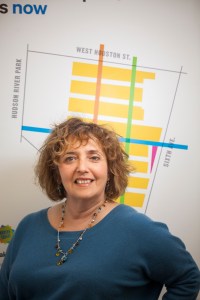
There was some push-back from preservationists about the rezoning of Hudson Square. How difficult is it to balance the historic nature of the area’s building stock with the requirements of creating a modern 24/7 community?
Our 1920’s massive Art Deco industrial buildings are the essence of who we are. What’s particularly impressive is the way that these buildings can be adaptively reused to meet the needs of today’s creative sector. Once the buildings are retrofitted—as most of them have been—to meet today’s energy efficiency standards, the properties are basically in walk-in condition for the open-floor-plan, sun-lit, loft spaces that are in demand today.
Our vision for the neighborhood isn’t so much one that is modern—the definition of “modern” changes every day—but one that is adaptable to changing environments. Hudson Square has been able to adapt for the past 300 years, and we have every expectation it will continue to do so for the next 300. That’s why we call our plan Hudson Square is Now, because now is, you know, always now.
Hudson Square is well known for its creative working community. Do you think the area can harness that population for residential growth?
I think whoever is going to live here is going to live here. We’re trying to capture the spirit of creativity here in everything we do. We don’t want to change the neighborhood—we want to make it more livable. We’re not trying to make it something it isn’t. It has become a magnet for creative people very organically.
You’d always rather be lucky than good, and I think the building stock here lends itself so well to how people work today—the loft-like spaces. I expect you’ll see that vibe reflected in the residential development as well.
This neighborhood has always been able to adapt. That’s happening again. We’re just nudging it along.
What else needs to be done in order to make Hudson Square a viable 24/7 community?
We are trying to create a pedestrian environment here, making the streets and sidewalks a place for people. That is coupled with creating demand on a 24/7 basis for things like a supermarket. Once you make those changes, the rest will take care of itself.
What other projects and priorities is the Hudson Square Connection working on?
We’re doing the basics now. When I first got here—we started in 2009—it was difficult to get across the street as a pedestrian. The signal timings weren’t meant for pedestrians, there were no trees, and there wasn’t a single bench. We’ve been putting in place the basics of a pedestrian environment. We’d love to build on that and see more sustainable elements. We have a bunch of temporary open space, but we’d love to see more permanent open space. We’d like to see more public art. We’d love to continue that sense of community that we’ve begun here.
As much as creative types and tech types spend time in their offices, they want community, and we think Hudson Square has the potential to be a creative campus in the sense that people can commune with one another in ways that will help imaginations be stimulated. That’s what makes this a special neighborhood, and we want to foster that.
Trinity Real Estate and a number of other prominent developers have a significant role in the community. How closely does the Hudson Square Connection work with them?
It’s interesting: Trinity does own about 40 percent of the property down here, but they only have one vote on the board. You have some of the great real estate companies down here. The Resnicks, Tishman Speyer, Newmark. There are a lot of terrific owners. and it has a small town feel.
I’ll give you an example: Beacon Capital is completing a building at 330 Hudson, and Minskoff is finishing a renovation at 101 Avenue of the Americas, and we’re working hand in glove to create a sustainable neighborhood. Our owners have drunk the Kool-Aid. I can’t say enough about our owners.
Given the development plans and the rezoning, do you expect more interest from developers?
I can’t speak to other neighborhoods, but this is a pretty hot product down here, and I don’t know of a developer that isn’t looking around in Hudson Square. We hope and expect everyone that comes here will come because of what it is: a bunch of owners, tenants and community people working together to make this a better place.
Going forward, what is your priority?
You see a lot of neighborhoods where there is a lot of change going on, bringing in tourists and big-box retail. I don’t think that’s what going to happen here. This is an authentic New York neighborhood, and keeping that authenticity is important. I’m a native New Yorker, so I can tell the difference.
